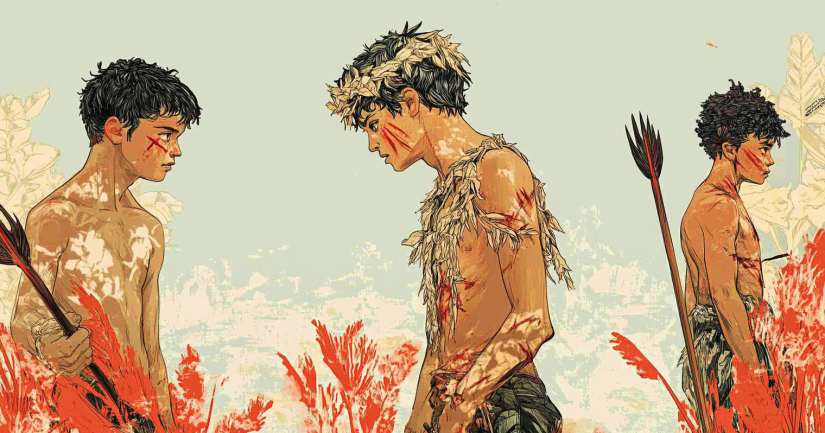Dive into the world of William Golding’s “Lord of the Flies” with our engaging vocabulary quiz! This quiz isn’t just a test; it’s an opportunity to deepen your understanding of the novel’s rich language and themes. As you answer each question, you’ll explore key terms that reveal the characters’ motivations and the story’s underlying messages.
Each word holds the power to shape your interpretation. By participating, you’ll not only sharpen your vocabulary but also enhance your appreciation of the text. Whether you’re a student, a teacher, or just a fan of classic literature, this quiz offers valuable insights.
Discover how the language reflects the boys’ descent into chaos. Uncover connections between the words and the broader themes of civilization versus savagery. You might even stumble upon a few new favorites! So, get ready to challenge yourself. Click the start button and embark on this literary adventure. Unlock the meanings behind the words and see how they impact your understanding of this timeless tale.
Expand your understanding with our Chapter 1 Quiz and explore the opening details. For more vocabulary insights, Chapter 2 Quiz will test your knowledge on early key terms in this classic novel.
Think you know Lord of the Flies? Take our Book Quiz and see where you stand among the characters.

Lord Of The Flies Vocabulary – FAQ
The vocabulary in “Lord of the Flies” plays a crucial role in conveying themes and character development. The choice of words reflects the tension and conflict among the boys, illustrating their gradual descent into savagery. Specific terms evoke emotions and set the tone, allowing readers to grasp the underlying messages about human nature and society.
Symbolism in “Lord of the Flies” is intricately tied to its vocabulary. For example, words associated with “the beast” symbolize the primal instincts within humans. The language surrounding the conch shell represents order and civilization. Through these symbols, the vocabulary enriches the narrative, providing deeper insights into the characters’ struggles and the overarching moral dilemmas they face.
Key vocabulary terms include “conch,” “beast,” “scar,” and “fire.” Each of these words encapsulates significant themes. The “conch” symbolizes authority and democracy, while “the beast” represents fear and the darker aspects of human nature. Understanding these terms is vital for grasping the novel’s central conflicts and moral lessons.
William Golding’s choice of language significantly affects the tone of “Lord of the Flies.” The descriptions of the island shift from idyllic to menacing, mirroring the boys’ transformation. Words that evoke beauty are juxtaposed with harsh, violent imagery, creating a stark contrast that heightens the sense of impending doom and chaos.
Studying vocabulary in “Lord of the Flies” enhances literary analysis skills by encouraging readers to explore the nuances of language. Understanding how specific words contribute to themes, character development, and tone allows for a more profound interpretation of the text. This analytical approach fosters critical thinking, improving overall comprehension and appreciation of literature.
